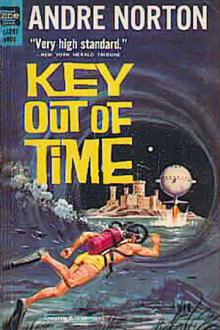Sanders of the River by Edgar Wallace (novels to read in english .TXT) 📗

- Author: Edgar Wallace
Book online «Sanders of the River by Edgar Wallace (novels to read in english .TXT) 📗». Author Edgar Wallace
"Because," said the man philosophically, "she had a lover. Therefore, Mighty Sun of Wisdom, I desire the return of my rods and my salt."
"What say you?" said Sanders.
The king wriggled uncomfortably.
"What says the father?" he said hesitatingly, and Sanders nodded.
"That is a wise question," he approved, and called the father, a voluble and an eager old man.
"Now, king," he said hurriedly, "I sold this woman, my daughter; how might I know her mind? Surely I fulfil my contract when the woman goes to the man. How shall a father control when a husband fails?"
Sanders looked at the king again, and the boy drew a long breath.
"It would seem, M'bleni, that the woman, your daughter, lived many years in your hut, and if you do not know her mind you are either a great fool or she is a cunning one. Therefore, I judge that you sold this woman knowing her faults. Yet the husband might accept some risk also. You shall take back your daughter and return 500 rods and a bag of salt, and if it should be that your daughter marries again, you shall pay one-half of her dowry to this man."
Very, very slowly he gave judgment, hesitatingly, anxiously, glancing now and again to the white man for his approval.
"That was good," said Sanders, and called forward another pleader.
"Lord king," said the new plaintiff, "a man has put an evil curse on me and my family, so that they sicken."
Here was a little poser for the little judge, and he puzzled the matter out in silence, Sanders offering no help.
"How does he curse you?" at last asked the king.
"With the curse of death," said the complainant in a hushed voice.
"Then you shall curse him also," said the king, "and it shall be a question of whose curse is the stronger."
Sanders grinned behind his hand, and the king, seeing the smile, smiled also.
From here onward Peter's progress was a rapid one, and there came to headquarters from time to time stories of a young king who was a Solomon in judgment.
So wise he was (who knew of the formula he applied to each case?), so beneficent, so peaceable, that the chief of the Akasava, from whom was periodically due, took advantage of the gentle administration, and sent neither corn nor fish nor grain. He did this after a journey to far-away Ikan, where he met the king's uncle, Sato-Koto, and agreed upon common action. Since the crops were good, the king passed the first fault, but the second tribute became due, and neither Akasava nor Ikan sent, and the people of Isisi, angry at the insolence, murmured, and the king sat down in the loneliness of his hut to think upon a course which was just and effective.
"I really am sorry to bother you," wrote Sanders to the Administrator again, "but I shall have to borrow your Houssas for the Isisi country. There has been a tribute palaver, and Peter went down to Ikan and wiped up his uncle; he filled in his spare time by giving the Akasava the worst licking they have ever had. I thoroughly approve of all that Peter has done, because I feel that he is actuated only by the keenest sense of justice and a desire to do the right thing at the right time—and it was time Sato-Koto was killed—though I shall have to reprimand Peter for the sake of appearances. The Akasava chief is in the bush, hiding."
Peter came back to his capital after his brief but strenuous campaign, leaving behind him two territories that were all the better for his visit, though somewhat sore.
The young king brought together his old men, his witch-doctors, and other notabilities.
"By all the laws of white men," he said, "I have done wrong to Sandi, because he has told me I must not fight, and, behold, I have destroyed my uncle, who was a dog, and I have driven the chief of the Akasava into the forest. But Sandi told me also that I must do what was just, and that I have done according to my lights, for I have destroyed a man who put my people to shame. Now, it seems to me that there is only one thing to do, and that is to go to Sandi, telling the truth and asking him to judge."
"Lord king," said the oldest of his councillors, "what if Sandi puts you to the chain-gang?"
"That is with to-morrow," quoth the king, and gave orders for preparations to be made for departure.
Half-way to headquarters the two met; King Peter going down and Sanders coming up. And here befell the great incident.
No word was spoken of Peter's fault before sunset; but when blue smoke arose from the fires of Houssa and warrior, and the little camp in the forest clearing was all a-chatter, Sanders took the king's arm and led him along the forest path.
Peter told his tale and Sanders listened.
"And what of the chief of the Akasava?" he asked.
"Master," said the king, "he fled to the forest cursing me, and with him went many bad men."
Sanders nodded again gravely.
They talked of many things till the sun threw long shadows, and then they turned to retrace their footsteps. They were within half a mile of the camp and the faint noise of men laughing, and the faint scent of fires burning came to them, when the chief of the Akasava stepped out from behind a tree and stood directly in their path. With him were some eight fighting men fully armed.
"Lord king," said the chief of the Akasava, "I have been waiting for you."
The king made neither movement nor reply, but Sanders reached for his revolver.
His hand closed on the butt, when something struck him and he went down like a log.
"Now we will kill the king of the Isisi, and the white man also." The voice was the chief's, but Sanders was not taking any particular interest in the conversation, because there was a hive of wild bees buzzing in his head, and a maze of pain; he felt sick.
"If you kill me it is little matter," said the king's voice, "because there are many men who can take my place; but if you slay Sandi, you slay the father of the people, and none can replace him."
"He whipped you, little king," said the chief of the Akasava mockingly.
"I would throw him into the river," said a strange voice after a long interval; "thus shall no trace be found of him, and no man will lay his death to our door."
"What of the king?" said another. Then came a crackling of twigs and the voices of men.
"They are searching," whispered a voice. "King, if you speak I will kill you now."
"Kill!" said the young king's even voice, and shouted, "Oh, M'sabo! Beteli! Sandi is here!"
That was all Sandi heard.
Two days later he sat up in bed and demanded information. There was a young doctor with him when he woke, who had providentially arrived from headquarters.
"The king?" he hesitated. "Well, they finished the king, but he saved your life. I suppose you know that?"
Sanders said "Yes" without emotion.
"A plucky little beggar," suggested the doctor.
"Very," said Sanders. Then: "Did they catch the chief of the Akasava?"
"Yes; he was so keen on finishing you that he delayed his bolting. The king threw himself on you and covered your body."
"That will do."
Sanders' voice was harsh and his manner brusque at the best of times, but now his rudeness was brutal.
"Just go out of the hut, doctor—I want to sleep."
He heard the doctor move, heard the rattle of the "chick" at the hut door, then he turned his face to the wall and wept.
CHAPTER II. KEEPERS OF THE STONE.
There is a people who live at Ochori in the big African forest on the Ikeli River, who are called in the native tongue "The Keepers of the Stone."
There is a legend that years and years ago, cala-cala, there was a strange, flat stone, "inscribed with the marks of the devils" (so the grave native story-teller puts it), which was greatly worshipped and prized, partly for its magic powers, and partly because of the two ghosts who guarded it.
It was a fetish of peculiar value to the mild people who lived in the big forest, but the Akasava, who are neither mild nor reverential, and being, moreover, in need of gods, swooped down upon the Ochori one red morning and came away with this wonderful stone and other movables. Presumably, the "ghosts of brass" went also. It was a great business, securing the stone, for it was set in a grey slab in the solid rock, and many spear-heads were broken before it could be wrenched from its place. But in the end it was taken away, and for several years it was the boast of the Akasava that they derived much benefit from this sacred possession. Then of a sudden the stone disappeared, and with it all the good fortune of its owners. For the vanishing of the stone coincided with the arrival of British rule, and it was a bad thing for the Akasava.
There came in these far-off days ('95?) a ridiculous person in white with an escort of six soldiers. He brought a message of peace and good fellowship, and talked of a new king and a new law. The Akasava listened in dazed wonderment, but when they recovered they cut off his head, also the heads of the escort. It seemed to be the only thing to do under the circumstances.
Then one morning the Akasava people woke to find the city full of strange white folk, who had come swiftly up the river in steamboats. There were too many to quarrel with, so the people sat quiet, a little frightened and very curious, whilst two black soldiers strapped the hands and feet of the Akasava chief prior to hanging him by the neck till he was dead.
Nor did the bad luck of the people end here; there came a lean year, when the manioc[1] root was bad and full of death-water, when goats died, and crops were spoilt by an unexpected hurricane. There was always a remedy at hand for a setback of this kind. If you have not the thing you require, go and take it. So, following precedents innumerable, the Akasava visited the Ochori, taking away much grain, and leaving behind dead men and men who prayed for death. In the course of time the white men came with their steamboats, their little brass guns, and the identical block and tackle, which they fastened to the identical tree and utilised in the inevitable manner.
"It appears," said the new chief—who was afterwards hanged for the killing of the king of the Isisi—"that the white man's law is made to allow weak men to triumph at the expense of the strong. This seems foolish, but it will be well to humour them."
His first act was to cut down the hanging-tree—it was too conspicuous and too significant. Then he set himself to discover the cause of all the trouble which had come upon the Akasava. The cause required little appreciation. The great stone had been stolen, as he well knew, and the remedy resolved itself into a question of discovering the thief. The wretched Ochori were suspect.
"If we go to them," said the chief of the Akasava thoughtfully, "killing them very little, but rather burning them, so that they told where this godstone was hidden, perhaps the Great Ones would forgive us."
"In my young days," said an aged councillor, "when evil men would not tell where stolen things were buried, we put hot embers in their hands and bound them tightly."
"That is a good way," approved another old man, wagging his head applaudingly; "also to tie men in the path of the soldier-ants has been known to make them talkative."
"Yet we may not go up against the Ochori for many reasons," said the chief; "the principal of which is that if the stone be with them we shall not overcome them owing to the two ghosts—though I do not remember that the ghosts were very potent in the days when the stone was with us," he added, not without hope.
The little raid which followed and the search for the stone are told briefly in official records. The search was fruitless, and the Akasava folk must needs content themselves with such picking as came to hand.
Of how Mr. Niceman, the deputy commissioner, and then Sanders himself, came up, I have already told. That was long ago, as the natives say, cala-cala,





Comments (0)